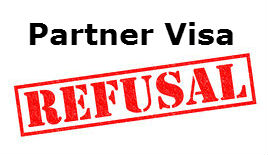 Partner visa refusal is on the increase according to migration industry insiders.
Partner visa refusal is on the increase according to migration industry insiders.
Australian Immigration Department crackdown on fake or ‘sham’ marriages and ‘contrived relationships’ has resulted in some innocent and genuine couples being caught up in the drag net.
This is a deeply troubling consequence of recently implemented measures to clamp down on migration fraud involving de facto and spousal sponsorship for partner visas.
The three types of partner visa to Australia are Onshore (combined subclass 820/801); Offshore (combined subclass 309/100); and Prospective Marriage (subclass 309).
Across all three subclass of partner visa refusal is on the rise. Although there are different grounds for refusal for each of the three types of Partner Visa, a consistent trend across all three is lack of satisfactory evidence of relationship.
The primary reason for partner visa refusal is inadequate evidence of genuine relationship and long term commitment.
Typically in the past, evidence of shared utility bills, lease agreements, phone records and photographs, etc, would suffice. Nowadays, these forms of evidence are increasingly viewed as easy to manufacture for a contrived relationship.
Unfortunately, because of the sheer numbers of contrived relationships, otherwise known as ‘sham marriages’, the departmental officers now require a more broad-based, holistic approach to reviewing evidence. This means that traditional forms of evidence that once would have been enough to guarantee a successful grant of Partner visa, now this is less the case.
Naturally, there are exceptions to this trend. Some applicants can still see a successful grant of Partner visa on the basis of a collection of traditional documentary evidence, such as photographs, signed statements, phone bills, etc.
However, anecdotal evidence from migration industry forums of migration agents and lawyers confirm a growing trend of Partner visa refusals, even where on the the surface the applicants having a seemingly strong case.
The key thing to remember when lodging partner visa applications, is that each case is unique and individual. Case officers are also individuals so what will work for one application will not necessarily be the same for another application.
When gathering evidence of relationship, try think as broadly as possible to document the relationship from multiple angles. The key is to think outside the box.
For advice or assistance, contact us or call us on the phone number on the home page of our website.
